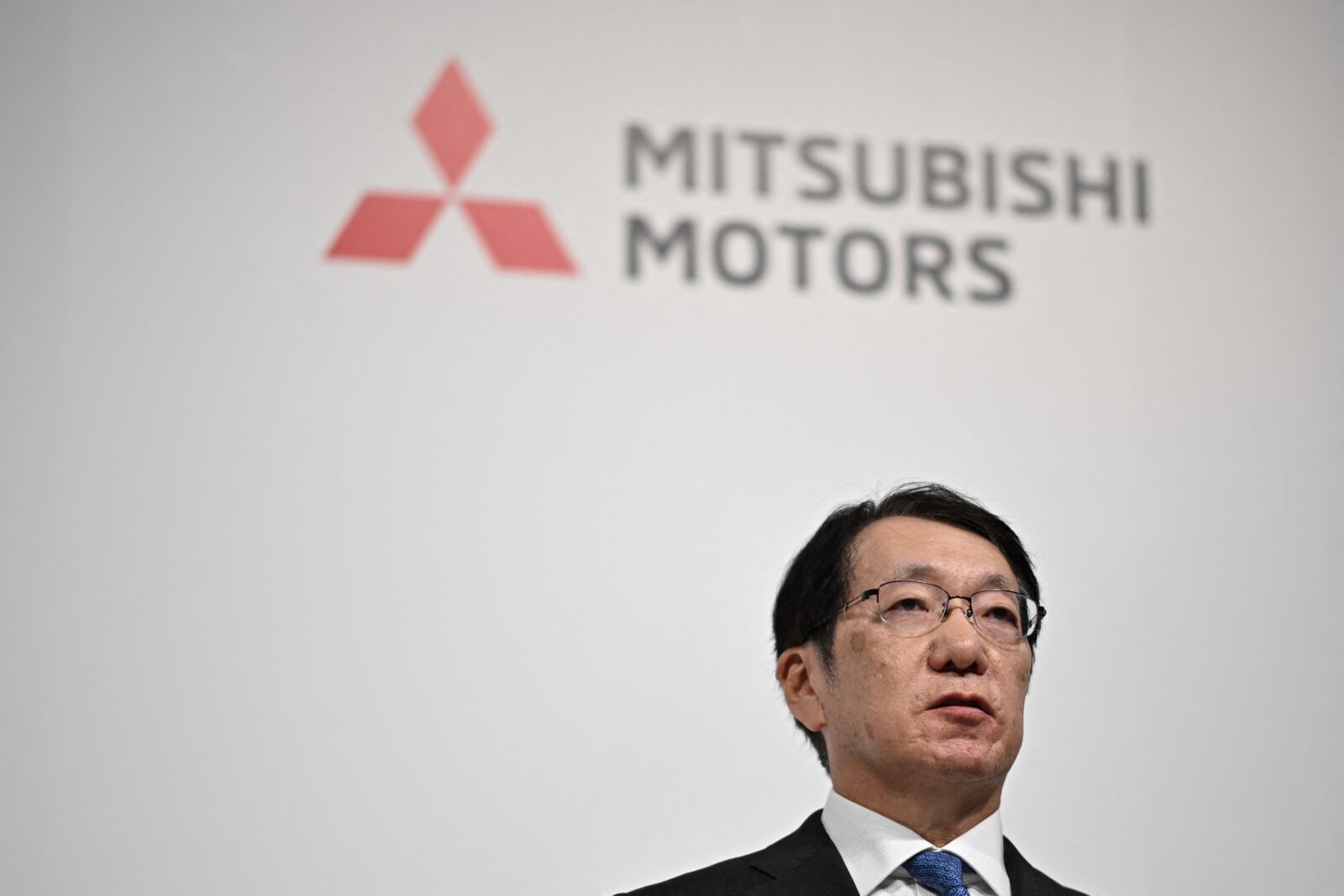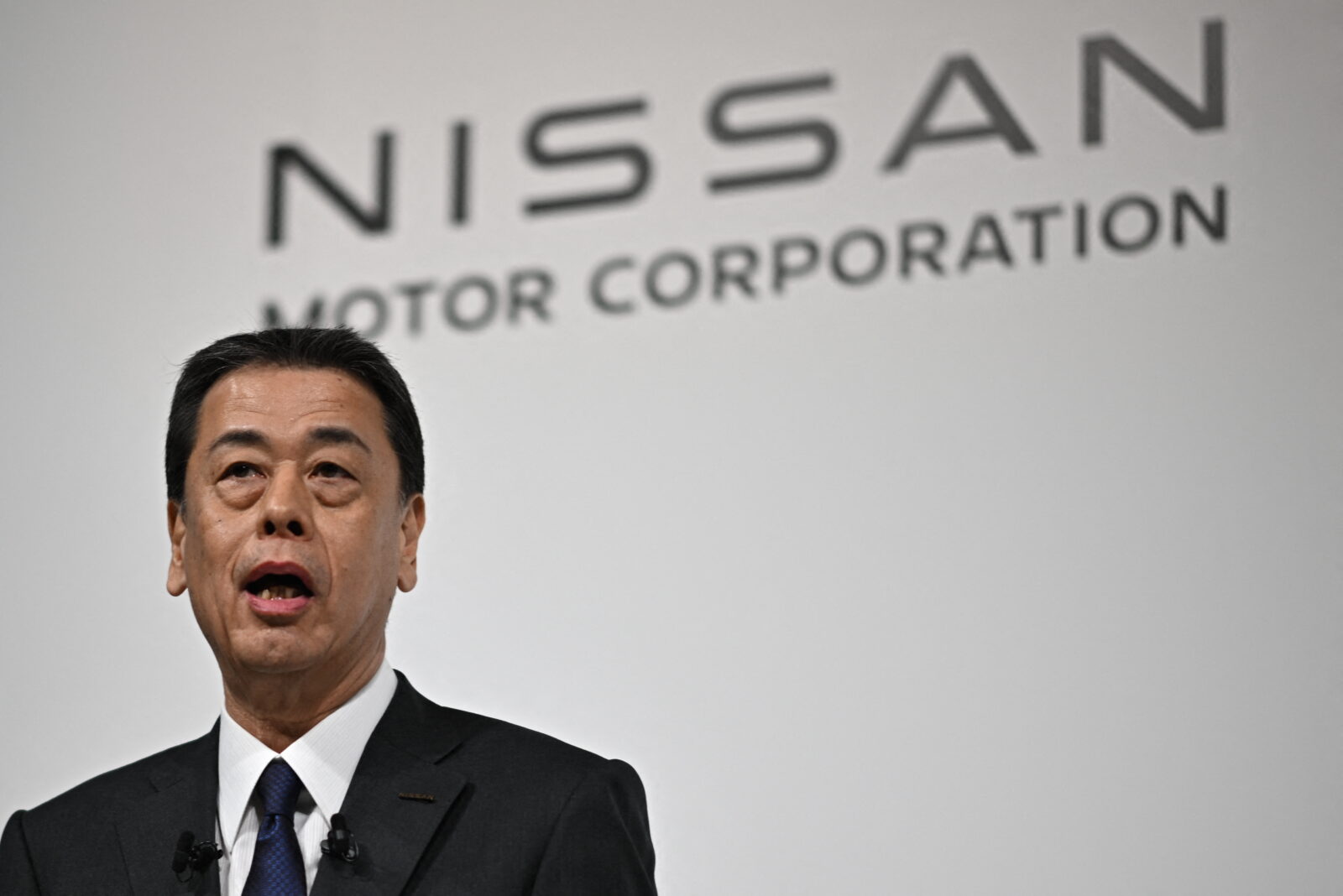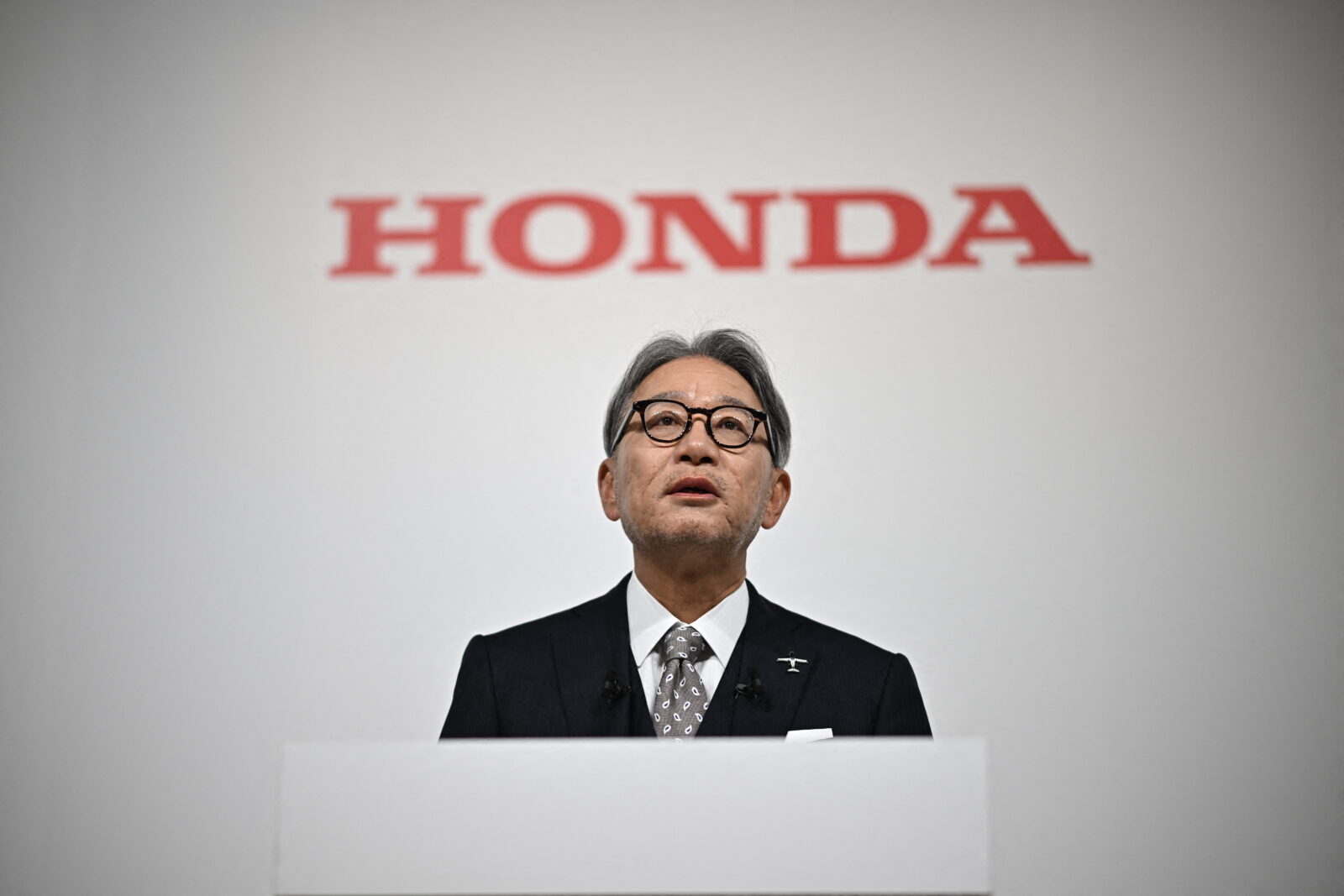Japanese auto giants Honda, Nissan to form joint holding company
 (L to R) Makoto Uchida, President and CEO of Nissan, Toshihiro Mibe, President and Representative Executive Officer of Honda, and Takao Kato, President and CEO of Mitsubishi Motors attend a joint press conference in Tokyo, Japan, on Dec. 23, 2024. (AFP Photo)
(L to R) Makoto Uchida, President and CEO of Nissan, Toshihiro Mibe, President and Representative Executive Officer of Honda, and Takao Kato, President and CEO of Mitsubishi Motors attend a joint press conference in Tokyo, Japan, on Dec. 23, 2024. (AFP Photo)
Honda and Nissan, prominent Japanese automotive manufacturers, agreed on Monday to form a joint holding company for electric vehicle (EV) production, following their entry into merger talks.
The two firms, along with Mitsubishi Motors, “have signed a memorandum of understanding to start discussions and considerations toward a business integration between the two companies through the establishment of a joint holding company,” a joint statement said.
Citing “dramatic changes in the environment surrounding both companies and the automotive industry,” a joint statement said they planned to list the holding company on the Tokyo Stock Exchange in August 2026.



Their collaboration would create the world’s third-largest automaker, expanding the development of EVs and self-driving tech while coming to the rescue of struggling Nissan.
Honda’s CEO on Monday denied that it was coming to the rescue of its struggling Japanese industry rival Nissan. “What I can say clearly now is this is not a rescue,” Toshihiro Mibe told reporters, stressing that one condition for the merger would be for Nissan to complete its so-called “turnaround” plan.
Honda and Nissan—Japan’s number two and three automakers after Toyota—want to seal the merger deal in June next year, but it’s unlikely to be a marriage of equals. Honda would nominate the president of the new holding company, whose board will be mostly made up of Honda executives, their joint statement said.
“Mitsubishi Motors aims to reach its conclusion by the end of January 2025 on the participation or involvement in the business integration between Nissan and Honda,” it added. Nissan is a majority shareholder of Mitsubishi Motors.
‘Nissan in panic mode’
Honda and Nissan already agreed in March to explore a strategic partnership on software and components for EVs, among other technologies. This partnership was joined in August by Mitsubishi Motors.
Nissan has weathered a turbulent decade, including the 2018 arrest of former boss Carlos Ghosn, who later jumped bail and fled Japan concealed in a music equipment box.
Ghosn told reporters in Tokyo on Monday via video link from Lebanon, where he is at large, that turning to its arch-rival Honda showed that Nissan was in “panic mode.”
“Although the two companies might be able to “find synergies for the future… I don’t see anything obvious about this partnership or this alliance,” Ghosn said.
On the other hand, Lackluster consumer spending and stiff competition in several markets are making life hard for many automakers.
Business has been especially tough for foreign brands in China, where electric vehicle manufacturers such as BYD are leading the way as demand grows for less polluting vehicles. China overtook Japan as the biggest vehicle exporter last year, helped by government support for EVs.



